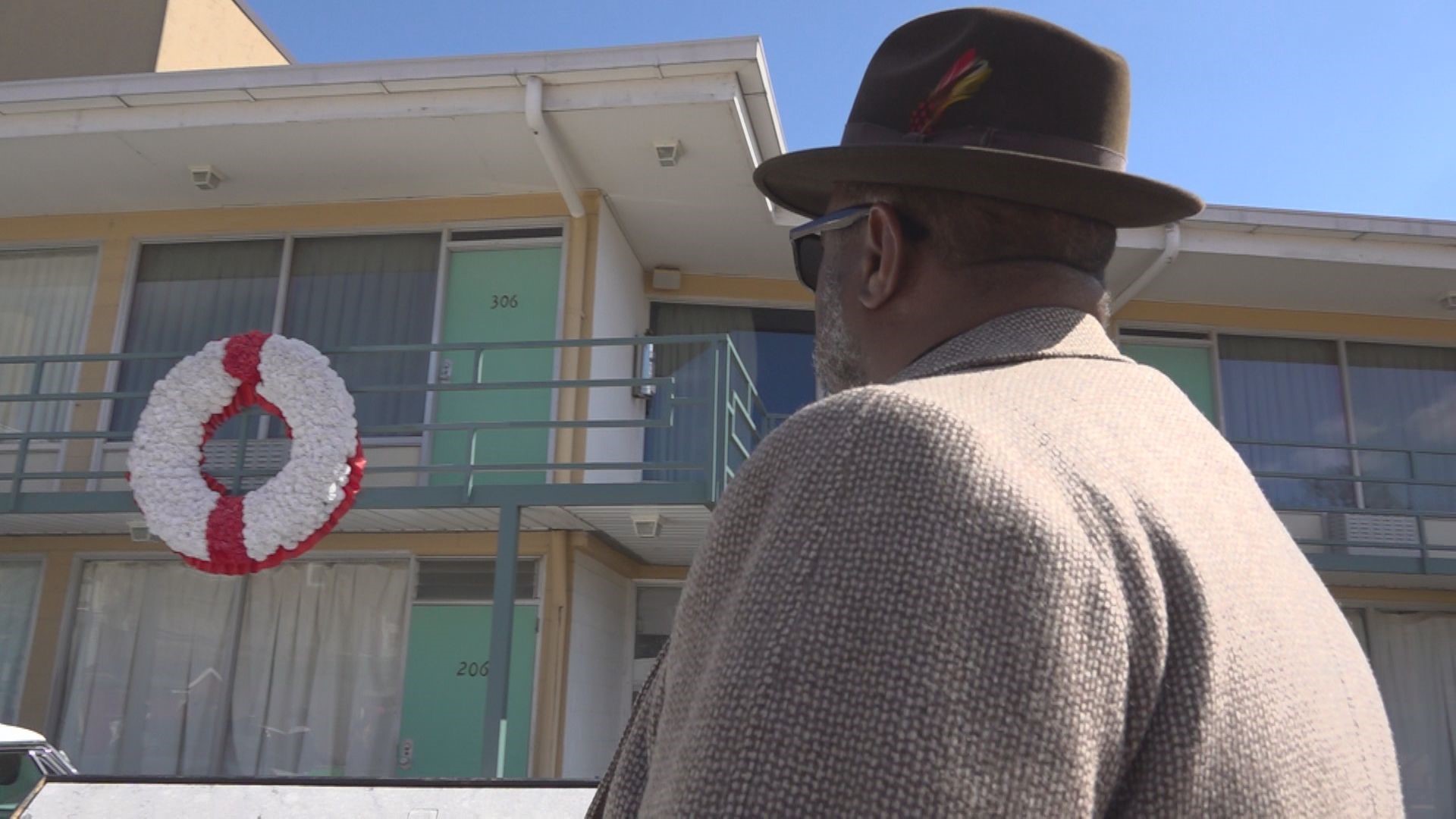MEMPHIS, Tenn. — At the National Civil Rights Museum, Memphians, old friends, former protesters, and many others are honoring Dr. Martin Luther King, Jr., 55 years after his assassination.
Every year since, on April 4 at 6:01 p.m., a moment of silence is broken only by the sound of ringing bell; that asks all of us to rededicate ourselves to becoming a united, equitable and inclusive nation.
People who remember that day say it felt like time stopped.
Tennessee House Representative Joe Towns was a young boy living with his grandmother just one block up the road from the Lorraine Motel.
"The Mulberry is where I was born. Born on this street. Played on this street as a kid and witnessed a tragic murder on this street as well," Towns said.
Towns, in his late 60s now, turns the clock back 55 years, when he was just a little boy growing up down the street from the Lorraine Motel.
"It was home for me and exciting because there was a swimming pool down there. It was a big swimming pool down there, and people going and coming. Mr. Bailey, who owned the hotel, and he was a little itty bitty man. So, he would be looking up to you," Towns said.
He remembers April 4th, 1968 as a nice Spring day. He felt the breeze through the open windows on the second floor of his grandmother's house.
From there, he could also see the crowd gathered in the distance to hear Dr. King speak during Memphis' city sanitation strike.
"I was lying on the floor watching television, and I heard something say 'pow' and my grandmother, she jumped up, and she said which I'll never forget, she said 'I bet that's Dr. King,'" Towns said. "So we're looking out the window, back then they wore these dark blue uniforms, the police officers were. It looked like there were a thousand of them down there."
With one shot, the city changed forever. Towns said times got worse, before they got better.
"After the fact the city started changing. There was violence. People weren't going to school. There's a different attitude in the air. The environment totally changed," Towns said. "It leaves a bitter taste in your mouth as a young kid. Why is an innocent man murdered for no reason at all? So, i didn't like that. So, that caused me to want to be civically involved."
Standing before the Lorraine Motel, now the National Civil Rights Museum,
55 years after the assassination, Towns pieces together what he heard so clearly to what people witnessed with their own eyes.
"You imagine the dreamer lying there on the porch. They're right here," Towns said. "The decimation of one of our best, beloved world citizens right here. Yes, it had a profound impact on my life. It still does."

